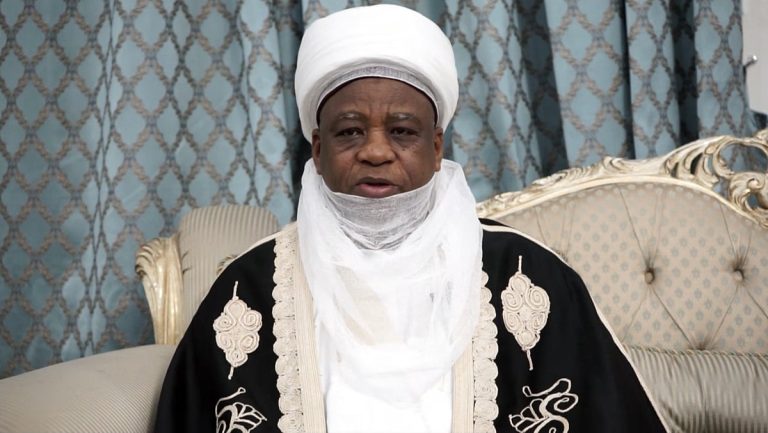From Paul Orude, Bauchi
The Sultan of Sokoto, Muhammadu Sa’ad Abubakar, has debunked the argument that the northern elite were responsible for the teeming number of out-of-school children in the region to sustain the dominance of the ruling class.
The Sultan, who described such an opinion as mischievous, made the clarification during the recent Traditional and Religious Leader Conference for the Education of the Girl Child, held in Bauchi.
The conference was organised by the Federal Ministry of Education and the Adolescent Girls’ Initiative for Learning and Empowerment (AGILE) project, in collaboration with the Sultan Foundation for Peace and Development (SFPD).
Addressing participants during the conference, Sa’ad Abubakar also opposed the argument that Islam was averse to the education of the girl child to sustain the dominance of males over females through ignorance.
“Those mischievous people saying we don’t want them to get to the level we are getting it wrong,” he stated.
He explained that poverty and lack of understanding of the purpose of education were the biggest barriers to the education of children in most communities in the region, especially the girl child.
“It is not education that is the problem but how it has been carried out to educate people,” he stated.
“The lack of funds to really educate everybody and also the need to understand what is the main point of educating a girl child.”
“To mischievous people, it is because we don’t want them to get to the level we are. That is false.”
“That is mischievous.”
“It is not that we are happy, if you don’t have education, you will not know how to worship the Almighty Allah that created you.”
“All the leaders of modern development in the world had been Muslim, the scientists of the world, so Islam is not against Islam and the education of the girl child,” he contended.
“In fact, Islam promotes educating a girl child because that is the beginning of the school of any child, and if she is not educated, who will she function as a mother?”
“The problem is lack of funds by a common person to take his children or girl child to school.”
“He can’t afford to give her a uniform, he can’t afford to buy her books, he can’t pay school fees, and that is why we keep on harping on revamping our educational sector.”
“Compulsory education must be compulsory for everybody.”
“You have to pay for everything. Once you tell somebody you have to pay for the education of your girl child to university level, that is why the out-of-school children are in millions in the north in particular.”
“To mischievous people, it is because we don’t want them to get to the level we are. That is false.”
He urged all stakeholders—traditional and religious leaders, policymakers, and development partners—to come together to address the problem of out-of-school children and the education of the girl child in the region.
“There are still girls on the streets selling groundnuts, as young as five years. Why should it be?” he lamented.
“These are the challenges our governors must rise up to.”
“Whenever I see governors building infrastructures—schools, I say yes because no matter what you want, education, you must have these buildings first, then you must have teachers, real teachers.”
“All is not lost. I urge all the northern traditional and religious leaders to come together and proffer a solution on how to get out of this mess of our people generally not getting education, and the girls because they are more vulnerable.”
“We must protect our children, and giving the girl child education is one of the best ways to protect her.”
In his remarks, Governor Bala Mohammed of Bauchi State said that education was of great priority to leaders of the region because of the prevalence of out-of-school children.
Mohammed disclosed that all the governors of the North East sub-region had pledged to tackle poverty to ensure that the girl child remains in school.
“We, the governors in our various states, came together under the North East Governors Forum to establish a peer review mechanism,” he said.
“We are working with a robust establishment of the Federal government under the NEDC, where we have come up with a master plan on how to address education.”
“This plan is to build mega schools, you can see them coming out, and we are working to make sure the human capital is provided.”
He lamented that poverty was hampering the education of the girl child in the region.
“Apart from being exposed and vulnerable, the girl is also being used by parents and others and not given the opportunities,” he stated.
“It is about apathy, poverty of mind, and culture.”
“We need to give specific traditional roles to our rulers so that they can perform this role well.”
“Here in Bauchi, we have worked really closely with the Emir of Bauchi, who is the chairman of the Council of Traditional Rulers, taking suit from His Eminence and the Sultan Foundation to go to the nooks and crannies, talking to the district heads, talking to the village heads to ensure that families bring back their children to schools.”
“This is not a mistrust by the family. It is about good governance.”
“We as governors know that we should not deepen the futility of education.”
